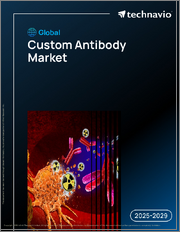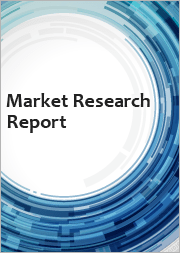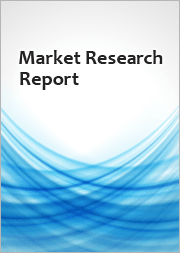
|
시장보고서
상품코드
1733556
다중특이성 항체 시장 : 약물 매출, 용량, 가격, 임상시험 동향(2030년)Global Multispecific Antibodies Market, Drug Sales, Dosage, Price & Clinical Trials Insight 2030 |
||||||
세계의 다중특이성 항체 시장, 약물 매출, 용량, 가격, 임상시험 동향(2030년) 보고서의 하이라이트
- 2030년까지 세계 다중특이성 항체 시장의 기회 : 500억 달러 이상
- 2024년 세계 다중특이성 항체 시장 매출 : 120억 달러 이상
- 승인된 다중특이성 항체 수 : 18개
- 세계 동향과 지역 동향
- 승인된 항체의 세계, 지역, 연간 및 분기별 매출
- 승인된 항체의 용법, 용량 및 가격에 대한 인사이트
- 임상시험 중인 전체 항체의 기업별, 국가별, 적응증별, 임상 단계별 종합 동향
- 임상시험 중인 다중특이성 항체 수: 700개 이상
본 보고서는 세계 다중특이성 항체 시장에 대한 종합적인 1차 및 2차 조사 결과를 정리한 것으로, 18개의 승인된 의약품을 대상으로 가격, 용량, 판매 데이터를 상세히 분석하였습니다. 시장 규모, 판매 의약품의 지역별 매출 분석, 최근 동향도 포함되어 있습니다. 다중특이성 항체 가격 및 시장 실적에 대한 분석의 정확성과 신뢰성을 확보하기 위해 기업 보고서, 거래소 제출 서류, 연차 및 분기 보고서, 공식 보도자료 등 광범위한 정보원을 활용했습니다.
- 700개 이상의 다중특이성 항체에 대한 종합적인 임상시험 정보를 위해 1만개 이상의 웹 링크를 조사했습니다.
- 연간, 분기, 세계, 지역별 매출 분석을 위해 SEC 문서, 기업 보고서, 선언문, 보도자료를 분석했습니다.
- FDA가 지정한 희귀질환 치료제의 적응증과 우선순위를 검증하기 위해 오픈 소스 및 독자적인 정보원에 접근했습니다.
- 여러 의약품 전용 웹사이트와 각종 뉴스, 기업의 보도자료를 조사하여 자세한 약가 및 용량에 대한 정보를 수집했습니다.
다중특이성 항체 시장은 치료적 혁신과 여러 경로를 동시에 표적화하여 복잡한 질병을 치료할 수 있는 능력으로 인해 바이오의약품 사업에서 가장 활발하고 빠르게 성장하고 있는 분야 중 하나이며, 2025년 5월 현재 전 세계적으로 18개의 다중특이성 항체가 승인되었습니다. 승인되었으며, 모두 이중특이성 항체입니다. 이 확장된 포트폴리오에는 이중특이성 항체로는 최초로 승인된 블린사이토(Blincyto)와 이중특이성 항체로는 최초로 암 이외의 적응증으로 승인된 헴리브라(Hemlibra)와 같은 선구적인 의약품이 포함되어 있습니다. 가장 최근에 다발성 골수종 치료제로 2025년 4월 제조판매 승인을 받은 리제네론의 리노지픽(Lynozyfic)은 이 분야에서 지속적인 모멘텀을 보여주고 있습니다.
승인된 다중특이성 항체의 종류는 다양한 적응증과 환자군에 대한 이 치료법의 유연성을 반영합니다. 반면, 중국에 본사를 둔 Akeso의 Cadonilimab은 두 개의 면역 체크포인트를 동시에 표적으로 하는 이중특이성 항체로는 유일하게 승인되었으며, 중국에서 개발된 이중특이성 항체로는 최초로 승인된 것입니다. 이러한 지역적 차이는 성숙한 제약 시장과 신흥국 생명공학 센터의 정보를 통해 이 분야의 혁신이 전 세계적으로 이루어지고 있음을 강조하고 있습니다.
FDA는 또한 오도넥스타맙과 림보셀타맙의 판매 신청을 평가하고 있으며, FDA는 가까운 시일 내에 더 많은 승인을 예상하고 있습니다. 오도넥스타맙은 여포성 림프종, 림보셀타맙은 미만성 대세포형 B세포 림프종, 다발성 골수종에 대한 적응증으로 EU에서 이미 승인된 바 있습니다. 이러한 대서양 횡단 규제 당국의 진전은 전 세계 규제 당국이 다중특이성 항체 기술에 대한 수용과 신뢰가 높아지고 있음을 반영합니다.
2024년 세계 다중특이성 항체 시장의 매출은 126억 달러가 넘었으며, 2025년 1분기 매출은 34억 6,000만 달러가 넘을 것으로 예상됩니다. 미국이 이 매출에 가장 큰 기여를 하고 있으며, 이는 이 주요 지역의 시장 성숙도와 수용성을 강조하고 있습니다. 로슈의 성숙한 제품인 Hemlibra와 Vabysmo가 시장 점유율의 절반 이상을 차지하여 경쟁 시장에서 선점 이익과 효과적인 시장 진입 전략의 가치를 강조합니다.
개발 파이프라인은 훨씬 더 방대하며, 이미 900개 이상의 다중특이성 항체가 다양한 개발 단계에 있습니다. 다중특이성 항체 개발의 전통적인 우선순위와 암 치료의 큰 미충족 의료 수요로 인해 암 분야가 이 파이프라인을 주도하고 있습니다. 그러나 파이프라인의 다양성은 암 분야뿐만 아니라 자가면역질환, 염증성 질환, 신경질환에서도 유망한 후보물질이 확인되고 있어 시장 기회를 획기적으로 확대할 수 있는 치료 영역의 확장 가능성을 보여주고 있습니다.
이 기술 혁신을 뒷받침하고 있는 주요 업계 진입자들은 Amgen, AstraZeneca, Genentech, Regeneron과 같은 대형 제약사들과 ABL Bio, Harbour BioMed, Innovent Biologics, Merus, Zymeworks와 같은 신생 바이오텍 기업들입니다. 이러한 기존 기업과 신생 기업의 조합은 지속적인 기술 혁신과 기술 진보를 보장하는 활기찬 경쟁 환경을 제공하고 있습니다.
2025년 4월 Boehringer Ingelheim과 Cue Biopharma의 바이러스 특이적 메모리 T세포를 통해 병원성 B세포를 공격하는 이중 특이성 후보물질 CUE-501의 개발 제휴와 같이 전략적 제휴는 시장 개척에 계속 영향을 미치고 있습니다. 이번 제휴는 계약금 1,200만 달러와 최대 3억 4,500만 달러의 마일스톤 지급을 수반하는 것으로, 특히 기존 치료법이 불충분한 자가면역질환에서 기업이 다중특이성 항체 기술을 추진하기 위해 막대한 자금을 투입하고 있음을 보여줍니다.
재발성 또는 불응성 다발성 골수종에 대한 이노센스 글렌마크 이노베이션의 삼중특이성 T세포 참여 임상시험용 ISB 2001이 2025년 4월 FDA로부터 패스트트랙으로 지정된 것은 중요한 미충족 의료 수요를 치료하기 위한 다중특이성 항체 기술의 발전에 대한 규제 당국의 지속적인 열정을 반영하고 있습니다. 이러한 지속적인 기술 혁신의 결과로 세계 다중특이성 항체 시장은 급성장할 것으로 예상되며, 제약 산업에서 가장 중요한 분야 중 하나가 될 것으로 예상됩니다.
세계의 다중특이성 항체 시장에 대해 조사했으며, 시장 개요와 함께 약제 동향, 임상시험 동향, 지역별 동향, 시장 진입 기업의 경쟁 상황 등을 조사하여 전해드립니다.
목차
제1장 차세대 다중특이성 항체 소개
제2장 차세대 다중특이성 항체 현재 임상 개발과 향후 상업화 전망
- 현재 시장 개요
- 향후 상업화 기회
- 협업, 라이선스 계약, 투자, 인수
- 차세대 다중특이성 항체 기업 독자적인 기술
제3장 차세대 다중특이성 항체 임상 동향, 적응증별
- 암
- 혈액질환
- 미생물 감염증
- 자가면역질환 및 염증성 질환
- 안질환
제4장 차세대 다중특이성 항체 임상 개발과 지역별 시장 동향
- 미국
- 유럽연합
- 중국
- 영국
- 일본
- 호주
- 한국
- 캐나다
제5장 승인된 다중특이성 항체 - 임상 개요, 가격 설정 및 용량 인사이트
- 개요
- 임상 개요, 가격 설정, 용량에 관한 인사이트
제6장 승인된 다중특이성 항체 - 매출 동향(2020-2025년 1분기)
제7장 세계의 다중특이성 항체 임상시험 개요
제8장 세계의 이중특이성 항체 임상시험 : 기업별, 적응증별, 상별
- 조사
- 전임상
- 제I상
- 제I/II상
- 제II상
- 제II/III상
- 제III상
- 사전 등록
- 등록
제9장 출시된 이중특이성 항체 임상적 인사이트 : 기업별, 적응증별, 상별
제10장 세계의 삼중특이성 항체 임상시험 : 기업별, 적응증별, 상별
- 조사
- 전임상
- 제I상
- 제I/II상
- 제II/III상
제11장 삼중특이성 항체 임상시험 인사이트 : 기업, 국가, 적응증, 상별
- 전임상
- 제I상
- 제I/II상
- 제II상
제12장 경쟁 구도
- AbbVie
- ABL Bio
- Abzyme Therapeutics
- Affimed Therapeutics
- Akeso Biopharma
- Alligator Bioscience
- Amgen
- Antibody Therapeutics
- APITBIO
- Astellas Pharma
- AstraZeneca
- Aptevo Therapeutics
- BioAtla
- Biocytogen Pharmaceuticals
- Biosion
- EpimAb Biotherapeutics
- FutureGen Biopharmaceutical
- Genentech
- Genmab
- Genor Biopharma
- Gensun Biopharma
- Harbour BioMed
- IGM Biosciences
- I-MAB Biopharma
- ImmuneOnco Biopharma
- ImmunoPrecise Antibodies
- Innate Pharma
- Innovent Biologics
- Invenra
- Johnson & Johnson
- Kenjockety Biotechnology
- LaNova Medicines Limited
- Light Chain Bioscience
- Linton Pharm
- Lyvgen Biopharma
- MacroGenics
- Merck
- Merus
- ModeX Therapeutics(OPKO Health)
- Molecular Partners
- NovaRock Biotherapeutics
- Numab
- OPKO Health
- Pfizer
- Regeneron Pharmaceuticals
- Revitope
- Roche
- Sanofi
- Sichuan Baili Pharmaceutical
- SystImmune
- Virtuoso Therapeutics
- Xencor
- Y-Biologics
- Zhejiang Shimai Pharmaceutical
- Zymeworks
Global Multispecific Antibodies Market, Drug Sales, Dosage, Price & Clinical Trials Insight 2030 Report Highlights:
- Global Multispecific Antibodies Market Opportunity By 2030: > USD 50 Billion
- Global Multispecific Antibodies Market Sales In 2024: > USD 12 Billion
- Number Of Approved Multispecific Antibodies: 18
- Global & Regional Trends Insight
- Approved Antibodies Global, Regional, Annual & Quarterly Sales Insight
- Approved Antibodies Dosage & Pricing Insight
- Comprehensive Insight On All Antibodies In Clinical Trials By Company, Country, Indication & Phase
- Number Of Multispecific Antibodies: In Clinical Trials: > 700
Research Methodology
At Kuick Research, we begin by outlining the foundation of our research methodology, which is driven by an integrated approach that combines multiple data dimensions. In our work, we ensure that the report captures market estimation, regional analysis, and a carefully constructed competitive landscape. We take pride in the detailed inclusion of key components such as the assessment of available information, clinical trial data, and the nuances of dosing and pricing. Every piece of data is purposefully gathered and validated to ensure that our findings are as robust as possible, reflecting the multifaceted nature of the market landscape.
This report on the global multispecific antibodies market is the result of comprehensive primary and secondary research, encompassing 18 approved drugs, alongside in-depth analysis of their pricing, dosing, and sales data. Market size, marketed drugs regional sales analysis and recent trends are also included in the report. To ensure the accuracy and reliability of our analysis on multispecific antibodies pricing and market performance, we leveraged an extensive array of sources, including company reports, exchange filings, annual and quarterly reports, and official press releases.
- Over 10000 distinct web links were reviewed for comprehensive clinical trial information on more than 700 multispecific antibodies.
- For annual, quarterly, global and regional sales analysis, SEC documents, company reports, declarations, press releases were analyzed.
- Open source and proprietary sources were accessed to validate FDA designated orphan drug indications & priority status.
- Multiple drug specific website and various news, company press releases were examined to gather detailed drug pricing and dosage information
Multispecific antibodies market globally has been one of the most energetic and fast growing sectors in the biopharmaceutical business as a result of therapeutic breakthroughs and growing acceptance of their ability to treat complicated pathologies by targeting multiple pathways simultaneously. As of May 2025, 18 multispecific antibodies have gained regulatory approval globally, all of which are bispecific constructs, a monumental milestone in the history of targeted therapeutics. This expanding portfolio boasts trailblazing drugs like Blincyto, the first bispecific antibody to gain approval, and Hemlibra, which was the first bispecific antibody to be approved for a non-cancer indication. The latest entrant to this therapeutic pipeline is Regeneron's Lynozyfic, which received marketing approval in April 2025 for the treatment of multiple myeloma, with evidence of ongoing momentum in the segment.
The range of approved multispecific antibodies mirrors the flexibility of this therapeutic modality across various disease indications and patient bases. Rybrevant is another key breakthrough as the first bispecific antibody for a solid tumor, whereas China based Akeso's Cadonilimab is especially noteworthy for being solely approved bispecific antibody intended to target two immune checkpoints at once and becoming the first China developed bispecific antibody to gain regulatory approval. This regional variation in development emphasizes the world nature of innovation in this sector, with input from both mature pharmaceutical markets and developing biotechnology centers.
The regulatory environment is still changing at a rapid pace, with further approvals expected in the near future. The FDA is also evaluating marketing applications for Odronextamab and Linvoseltamab, both of which have already received approval in the EU for follicular lymphoma and diffuse large B-cell lymphoma, and multiple myeloma, respectively. Such transatlantic regulatory advancements reflect the growing acceptability and trust in multispecific antibody technologies by global regulatory bodies.
Market performance has been extremely strong, with global multispecific antibodies market sales in 2024 amounting to over US$ 12.6 Billion, followed by first quarter 2025 sales of over US$ 3.46 Billion. The US is the largest contributor to these sales, highlighting the maturity and acceptance of the market in this prime geography. Roche's mature products, Hemlibra and Vabysmo, lead the market share, with over half of total sales, emphasizing the value of first mover benefit and effective market entry strategies in this competitive market.
The pipeline for development is an even more daunting picture, with more than 900 multispecific antibodies already in various stages of development. Oncology is leading this pipeline, both due to the traditional priority of multispecific antibody development and due to the large unmet medical needs in cancer treatment. However, pipeline diversity is not confined to oncology alone with promising candidates being identified in autoimmune and inflammatory diseases and neurological disorders as well, indicating an expanding therapeutic horizon that has the potential to dramatically expand market opportunities.
Major industry players behind this innovation are well established pharma giants like Amgen, AstraZeneca, Genentech, and Regeneron, as well as new biotech firms like ABL Bio, Harbour BioMed, Innovent Biologics, Merus, and Zymeworks. This combination of well established and new players provides a vibrant competitive landscape that ensures ongoing innovation and technological progress.
Strategic alliances continue to influence the development of the market, such as in the April 2025 alliance of Boehringer Ingelheim and Cue Biopharma for the development of CUE-501, a bispecific candidate that attacks pathogenic B cells via virus-specific memory T cells. The alliance, involving a US$ 12 Million upfront payment and possible milestone payments of up to US$ 345 Million, illustrates the high financial investment that companies are undertaking to drive multispecific antibody technologies, specifically in autoimmune indications where existing treatments are still inadequate.
Regulatory encouragement of innovation continues to be robust, with the FDA's April 2025 fast track designation of ISB 2001, an Ichnos Glenmark Innovation investigational trispecific T-cell engager for relapsed or refractory multiple myeloma, reflecting ongoing regulatory enthusiasm for moving multispecific antibody technologies forward that treat important unmet medical needs. As a result of these ongoing innovations, the global multispecific antibody market is expected to grow rapidly and is on track to become one of the most important segments within the pharmaceutical industry.
Table of Contents
1. Introduction to Next Generation Multispecific Antibodies
2. Next Generation Multispecific Antibody Current Clinical Development & Future Commercialization Outlook
- 2.1 Current Market Overview
- 2.2 Future Commercialization Opportunity
- 2.3 Collaborations, License Agreements, Investments & Acquisitions
- 2.4 Next Generation Multispecific Antibody Proprietary Technologies By Company
3. Next Generation Multispecific Antibody Clinical Trends by Indication
- 3.1 Cancer
- 3.2 Hematological Disorders
- 3.3 Microbial Infections
- 3.4 Autoimmune & Inflammatory Disorders
- 3.5 Ocular Diseases
4. Next Generation Multispecific Antibody Clinical Development & Market Trends by Region
- 4.1 US
- 4.2 EU
- 4.3 China
- 4.4 UK
- 4.5 Japan
- 4.6 Australia
- 4.7 South Korea
- 4.8 Canada
5. Approved Multispecific Antibodies - Clinical Overview, Pricing & Dosage Insight
- 5.1 Overview
- 5.2 Clinical Overview, Pricing & Dosage Insight
6. Approved Multispecific Antibodies - Sales Insight (2020 - Q1'2025)
7. Global Multispecific Antibodies Clinical Trials Overview
8. Global Bispecific Antibodies Clinical Trials By Company, Indication & Phase
- 8.1 Research
- 8.2 Preclinical
- 8.3 Phase-I
- 8.4 Phase-I/II
- 8.5 Phase-II
- 8.6 Phase-II/III
- 8.7 Phase-III
- 8.8 Preregistration
- 8.9 Registered
9. Marketed Bispecific Antibodies Clinical Insight By Company, Country & Indication
10. Global Trispecific Antibodies Clinical Trials Insight By Company, Country, Indication & Phase
- 10.1 Research
- 10.2 Preclinical
- 10.3 Phase I
- 10.4 Phase I/II
- 10.5 Phase II/III
11. Tetraspecific Antibodies Clinical Trials Insight By Company, Country, Indication & Phase
- 11.1 Preclinical
- 11.2 Phase I
- 11.3 Phase I/II
- 11.4 Phase II
12. Competitive Landscape
- 12.1 AbbVie
- 12.2 ABL Bio
- 12.3 Abzyme Therapeutics
- 12.4 Affimed Therapeutics
- 12.5 Akeso Biopharma
- 12.6 Alligator Bioscience
- 12.7 Amgen
- 12.8 Antibody Therapeutics
- 12.9 APITBIO
- 12.10 Astellas Pharma
- 12.11 AstraZeneca
- 12.12 Aptevo Therapeutics
- 12.13 BioAtla
- 12.14 Biocytogen Pharmaceuticals
- 12.15 Biosion
- 12.16 EpimAb Biotherapeutics
- 12.17 FutureGen Biopharmaceutical
- 12.18 Genentech
- 12.19 Genmab
- 12.20 Genor Biopharma
- 12.21 Gensun Biopharma
- 12.22 Harbour BioMed
- 12.23 IGM Biosciences
- 12.24 I-MAB Biopharma
- 12.25 ImmuneOnco Biopharma
- 12.26 ImmunoPrecise Antibodies
- 12.27 Innate Pharma
- 12.28 Innovent Biologics
- 12.29 Invenra
- 12.30 Johnson & Johnson
- 12.31 Kenjockety Biotechnology
- 12.32 LaNova Medicines Limited
- 12.33 Light Chain Bioscience
- 12.34 Linton Pharm
- 12.35 Lyvgen Biopharma
- 12.36 MacroGenics
- 12.37 Merck
- 12.38 Merus
- 12.39 ModeX Therapeutics (OPKO Health)
- 12.40 Molecular Partners
- 12.41 NovaRock Biotherapeutics
- 12.42 Numab
- 12.43 OPKO Health
- 12.44 Pfizer
- 12.45 Regeneron Pharmaceuticals
- 12.46 Revitope
- 12.47 Roche
- 12.48 Sanofi
- 12.49 Sichuan Baili Pharmaceutical
- 12.50 SystImmune
- 12.51 Virtuoso Therapeutics
- 12.52 Xencor
- 12.53 Y-Biologics
- 12.54 Zhejiang Shimai Pharmaceutical
- 12.55 Zymeworks






